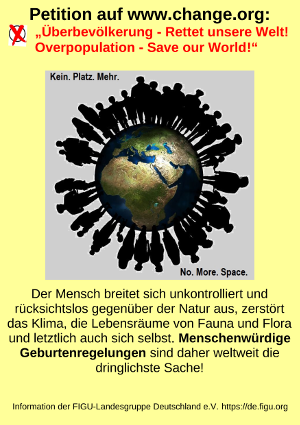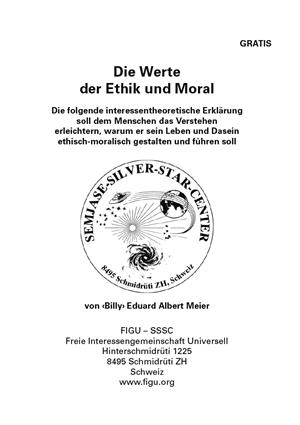|
Is It Worthwhile to Start Up a Business Today? Or: How Can We all Contribute to a Healthy Economy
and Ensure that the Fruits of our Common Labor Are Justly Shared by all Humanity? by Rebecca Walkiw
January 2007
With fewer and fewer jobs available for an ever increasing number of people worldwide, it’s actually easier to start up a business today than to find a job that pays a living wage. The reason for this is simple: Our global economy is based on the myth of endless natural resources, endless market expansion and endless economic growth. In reality, however, we live on a planet that is limited in size with limited resources and a limited potential for market expansion. Consequently, the demand for all life necessities, including jobs, continues to grow with our growing population, although the natural capacity to supply these demands was surpassed several centuries ago, when our global population exceeded the sustainable limit for an optimal development of human life in harmony with nature. Since then, our natural resources have been depleted to a level that no longer sustains the once great diversity of floral and faunal life on earth and also threatens the existence of numerous other life forms, including the very planet we live on (see “Stirbt unser blauer Planet?” by Heinz Haber).
Unending economic growth is not a law of nature but rather a man-made principle rooted in the desire to accumulate wealth and power. This unnatural principle has led our economy into a state of stagnation, in which 20 percent of the global population now owns 86 percent of humanity’s wealth. Such a system natu-rally defies the laws of logic and is destined to fail, because the profits produced, which are the fruits of the working population, are largely restricted to a privileged minority. Consequently, only the very wealthy are growing wealthier, while nearly half of our global family is sinking into poverty and subjugation. These conditions, by the way, provide an excellent breeding ground for tyrants and dictators.
Work, on the other hand, is a necessary component of human progress and is the root of health and pros-perity. Without it, no life form and no social or economic system can sustain itself for long. That’s why it’s important in this era of great social change to re-examine the meaning of work in our society. Work is a natural right and duty of every human being, through which the individual applies his acquired knowledge and skills to fulfill important functions in society. In so doing, the individual not only promotes his own development and well-being but also contributes to the progress and well-being of society.
Our society can only exist in a stable form and continue to develop, if we all pitch in and work together, each according to his abilities, for the common well-being of all. If we wish to have a flourishing economy, then we must start to manage our resources wisely and provide meaningful work for all members of society (see “Equality for all”). The first step towards accomplishing this goal is to bring our population count back into balance with nature. This in turn can only be achieved through public education and a global consensus to implement a humanitarian program of global birth control. For further information on how to achieve a balanced global population, see www.figu.org/us/overpopulation/birthrate_check.htm. Secondly, we must ensure that every child be granted the best education possible in order to acquire the necessary knowledge, skills and human values to become a responsible citizen and a meaningful member of society. Pumping money into elite schools for privileged minorities will not improve our faltering economy. It will only add to the inequality that currently prevails and make it even worse. All of our children are equally valuable human beings, regardless of all differences, and every single one of them, without exception, should be equally supported and afforded the best education possible to develop their individual abilities to their fullest potential.
Every system lives from the notion that the individual places his abilities at the disposal of society in order to fulfill necessary tasks and thus acts in the spirit of common well-being. Bearing this in mind, no system should ever be misused by individuals or a privileged minority to amass private wealth and personal power. Furthermore, every individual has the natural right and responsibility to work for his livelihood and develop his potential as a human being. Consequently, every individual should be equally supported in his efforts to acquire meaningful work where he can apply and develop his individual abilities for the benefit of all. Only then can our system truly develop and grow into a strong and prosperous society, where all human needs are equally fulfilled, all human rights are equally respected, and all human beings draw equal benefits for equal efforts from the fruits of their common labor. This vision is not an illusion. It is an achievable dream rooted in logic that can be realized with the necessary wisdom, self-determination and hard work.
In 1962, a group of students in Port Huron, Michigan had a similar vision and took it upon themselves to draw up an agenda for their generation to work towards its realization. In a statement they wrote, for-mulating their goals, known as the Port Huron Statement, they envisioned a system that “would replace power rooted in possession, privilege, or circumstance by power and uniqueness rooted in love, reflective-ness, reason, and creativity” (see tomhayden.com/porthuron.htm). When power is used for material gain only, it becomes a force of corruption, enslavement, exploitation and oppression. In a system guided by reason and love, power may therefore only be used to acquire knowledge and wisdom and to promote human progress. In the system envisioned by the students of Port Huron, the common people would participate in the decision-making process of the government via public groupings formed for this purpose and thus share in social decisions determining the quality and direction of their life. The students of Port Huron also envisioned an economic system based on the principles “that work should involve incentives worthier than money or survival. It should be educative, not stultifying; creative, not mechanical; self-directed, not manipulated, encouraging independence, a respect for others, a sense of dignity, and a willingness to accept social responsibility, since it is this experience that has crucial influence on habits, perceptions and individual ethics.”
In contrast to today’s economic principles of global market expansion and profit maximization, through which employees are often reduced to the status of production or service machines that may be used and discarded at will, the above principles promote the development of well-rounded, creative and socially responsible citizens, who in turn promote the development of a healthy economy and a humanitarian society. In keeping with the spirit of these principles, let’s imagine a society based on humanism and the cultivation of universal human values such as knowledge, wisdom, truth, love, logic and justice. Imagine a society whose greatest priority is to fulfill the needs of its people and promote human progress while maintaining a balance with nature – a society, in which the individual voluntarily takes over and fulfills various tasks, according to his abilities, for a given number of hours each day. In return, the individual receives everything he needs to live as compensation for his work: food, clothing, housing, energy, education, medical care, transportation and all other life necessities. This way, every individual would receive equal compensation for an equal number of hours worked, and all people would have enough to lead a fulfilling life. This type of social equality can only be achieved, however, when humanity lives in balance with nature. Only then would it be possible to provide equal education and meaningful work for all citizens of earth, through which our economy would naturally blossom and grow. Such a system is admittedly far from being realized today, but it is nonetheless achievable and well worth striving for.
Our current system, which is based on the illogical concept of endless economic growth and the hoarding of material wealth by a small fraction of our global population, has caused the economic stagnation and social disintegration that we suffer from today and is no longer sustainable. If we wish to save our planet and make life on earth worth living for future generations, it is time for us to lay the groundwork for a truly human-itarian society, in which universal values are cultivated that unite humanity and promote world peace and in which humankind lives in harmony with nature and fully respects the natural freedoms and rights of all human beings. We can only achieve this, however, if we are willing to accept more social responsibility by working towards a true people’s democracy, in which we, the people, may actively participate in the decision-making process of our government and vote directly on all issues that affect our lives via people’s referendums (see “Equality for all” and “Gleichwertigkeit” by Rebecca Walkiw).
Direct democratic participation is also reflected in the principles formulated by the students of Port Huron, which state “that the economic experience is so personally decisive that the individual must share in its full determination” and “that the economy itself is of such social importance that its major resources and means of production should be open to democratic participation and subject to democratic social regulation.” Today, a small but growing number of our global population has access – via computers and information technology – to a wealth of knowledge pertaining to frontier sciences, the humanities and universal life, which can help us make tremendous strides in our overall human awareness and human progress (see www.figu.org). If we learn to live according to the laws of nature and always seek the truth in developing our awareness and human qualities, our dream of a truly humanitarian society will become a reality.
In view of all the above-stated, I think it is very worthwhile to start up a business today and create meaningful work wherever possible, so that ever more people can become self-supportive through their own creative efforts and help others to do the same. This would not only improve the humanitarian situation in our society but would also strengthen the overall economy. If all people would unite as a global family and work together in the spirit of brotherhood, we could not only strengthen our global economy but we could also achieve the principal goal envisioned by the students of Port Huron, which is to create a world “where hunger, poverty, disease, ignorance, violence, and exploitation are replaced as central features by abundance, reason, love and international cooperation.”
This vision, which I believe is the greatest goal of our global humanity, was expressed by another child of the same generation with the following words:
“Imagine no possessions
I wonder if you can No need for greed or hunger A brotherhood of man Imagine all the people
Sharing all the world...
You may say I'm a dreamer
But I'm not the only one
I hope someday you'll join us
And the world will live as one”
(From “Imagine” by John Lennon) Join us in the struggle for…
A global population in balance with nature Meaningful work, equality and a life of human dignity for all people
A multinational peace-fighting troop to restore and safeguard world peace
A direct democracy with people’s referendums worldwide
A humanitarian society guided by truth, knowledge, wisdom, reason and love
A healthy planet with sufficient space and resources to easily sustain all life on earth…
Together, we shall overcome. When the going gets tough, the tough get going!
|


